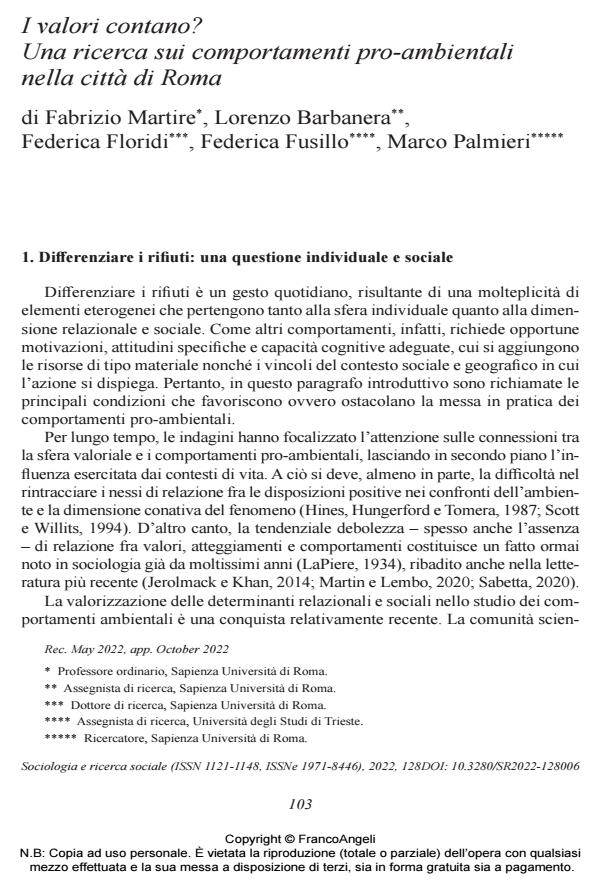Do values matter? Research on pro-environmental behavior in the city of Rome
Journal title SOCIOLOGIA E RICERCA SOCIALE
Author/s Fabrizio Martire, Lorenzo Barbanera, Federica Floridi, Federica Fusillo, Marco Palmieri
Publishing Year 2022 Issue 2022/128
Language Italian Pages 19 P. 103-121 File size 247 KB
DOI 10.3280/SR2022-128006
DOI is like a bar code for intellectual property: to have more infomation
click here
Below, you can see the article first page
If you want to buy this article in PDF format, you can do it, following the instructions to buy download credits

FrancoAngeli is member of Publishers International Linking Association, Inc (PILA), a not-for-profit association which run the CrossRef service enabling links to and from online scholarly content.
In this article, the relationship between values and the conative component of human action is explored in the context of pro-environmental behaviors, con- sidered actions that can offer benefits to the natural environment. In the literature the environmentally friendly behavior is distinguished according to the skills it requires to be done properly. The results of this research show that age and a high qualification influence a wide range of pro-environmental behavior, especially those that do not require the use of particular knowledge. On the other hand, the relationship between individual values and eco-sustainable action is robust when pro-environmental behaviors are put into practice that require uncommon skills and knowledge to be applied without error. This has been seen in the context of the differentiation and packaging of household waste, a demanding task that requires at the same time environmental knowledge and values oriented towards ecocentrism.
Fabrizio Martire, Lorenzo Barbanera, Federica Floridi, Federica Fusillo, Marco Palmieri, I valori contano? Una ricerca sui comportamenti pro-ambientali nella città di Roma in "SOCIOLOGIA E RICERCA SOCIALE " 128/2022, pp 103-121, DOI: 10.3280/SR2022-128006